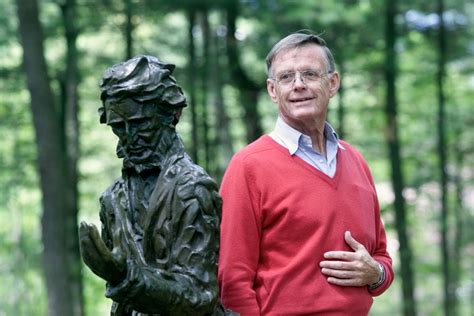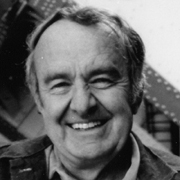A Quote by Carl Sagan
I believe that even a smattering of such findings in modern science and mathematics is far more compelling and exciting than most of the doctrines of pseudoscience, whose practitioners were condemned as early as the fifth century B.C. by the Ionian philosopher Heraclitus as “nigh -walkers, magicians, priests of Bacchus, priestesses of the wine-vat, mystery-mongers.” But science is more intricate and subtle, reveals a much richer imiverse, and powerfully evokes our sense of wonder.
Quote Topics
Bacchus
Believe
Century
Compelling
Condemned
Early
Even
Exciting
Far
Fifth
Findings
I Believe
Intricate
Magicians
Mathematics
Modern
Modern Science
More
Most
Much
Mystery
Nigh
Our
Philosopher
Priestesses
Priests
Pseudoscience
Reveals
Richer
Science
Sense
Sense Of Wonder
Subtle
Than
Vat
Walkers
Were
Whose
Wine
Wonder
Related Quotes
Science arouses a soaring sense of wonder. But so does pseudoscience. Sparse and poor popularizations of science abandon ecological niches that pseudoscience promptly fills. If it were widely understood that claims to knowledge require adequate evidence before they can be accepted, there would be no room for pseudoscience.
I believe that part of what propels science is the thirst for wonder. It's a very powerful emotion. All children feel it. In a first grade classroom everybody feels it; in a twelfth grade classroom almost nobody feels it, or at least acknowledges it. Something happens between first and twelfth grade, and it's not just puberty. Not only do the schools and the media not teach much skepticism, there is also little encouragement of this stirring sense of wonder. Science and pseudoscience both arouse that feeling. Poor popularizations of science establish an ecological niche for pseudoscience.
I can think of very few science books I've read that I've called useful. What they've been is wonderful. They've actually made me feel that the world around me is a much fuller, much more wonderful, much more awesome place than I ever realized it was. That has been, for me, the wonder of science. That's why science fiction retains its compelling fascination for people. That's why the move of science fiction into biology is so intriguing. I think that science has got a wonderful story to tell.
I now believe that the universe was brought into existence by an infinite Intelligence. I believe that this universe's intricate laws manifest what scientists have called the Mind of God. I believe that life and reproduction originate in a divine Source. Why do I believe this, given that I expounded and defended atheism for more than a half century? The short answer is this: this is the world picture, as I see it, that has emerged from modern science.
How is it that hardly any major religion has looked at science and concluded, “This is better than we thought! The Universe is much bigger than our prophets said, grander, more subtle, more elegant?” Instead they say, “No, no, no! My god is a little god, and I want him to stay that way.” A religion, old or new, that stressed the magnificence of the Universe as revealed by modern science might be able to draw forth reserves of reverence and awe hardly tapped by the conventional faiths.
Yet as I cast my eye over the whole course of science I behold instances of false science, even more pretentious and popular than that of Einstein gradually fading into ineptitude under the searchlight; and I have no doubt that there will arise a new generation who will look with a wonder and amazement, deeper than now accompany Einstein, at our galaxy of thinkers, men of science, popular critics, authoritative professors and witty dramatists, who have been satisfied to waive their common sense in view of Einstein's absurdities.
Mathematics has two faces: it is the rigorous science of Euclid, but it is also something else. Mathematics presented in the Euclidean way appears as a systematic, deductive science; but mathematics in the making appears as an experimental, inductive science. Both aspects are as old as the science of mathematics itself.





























